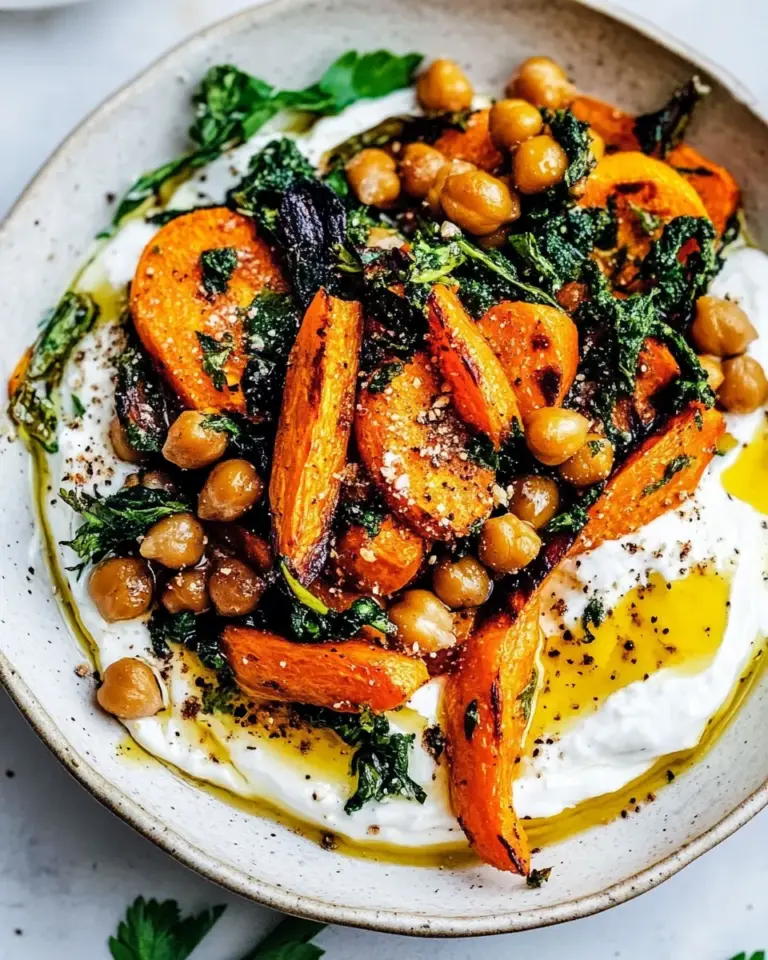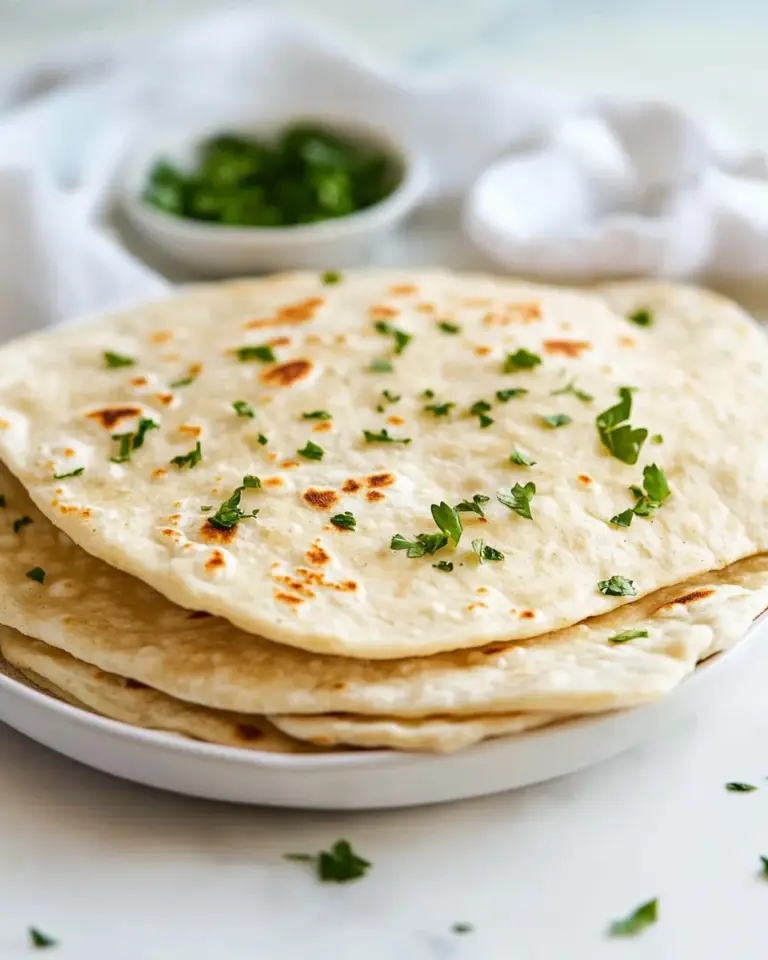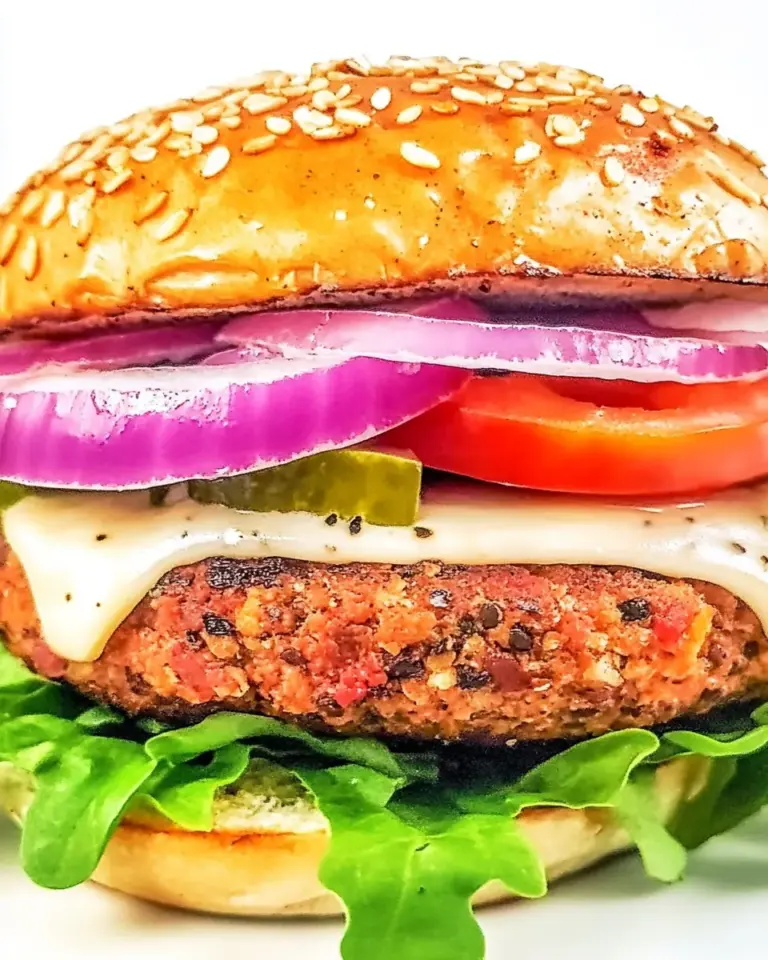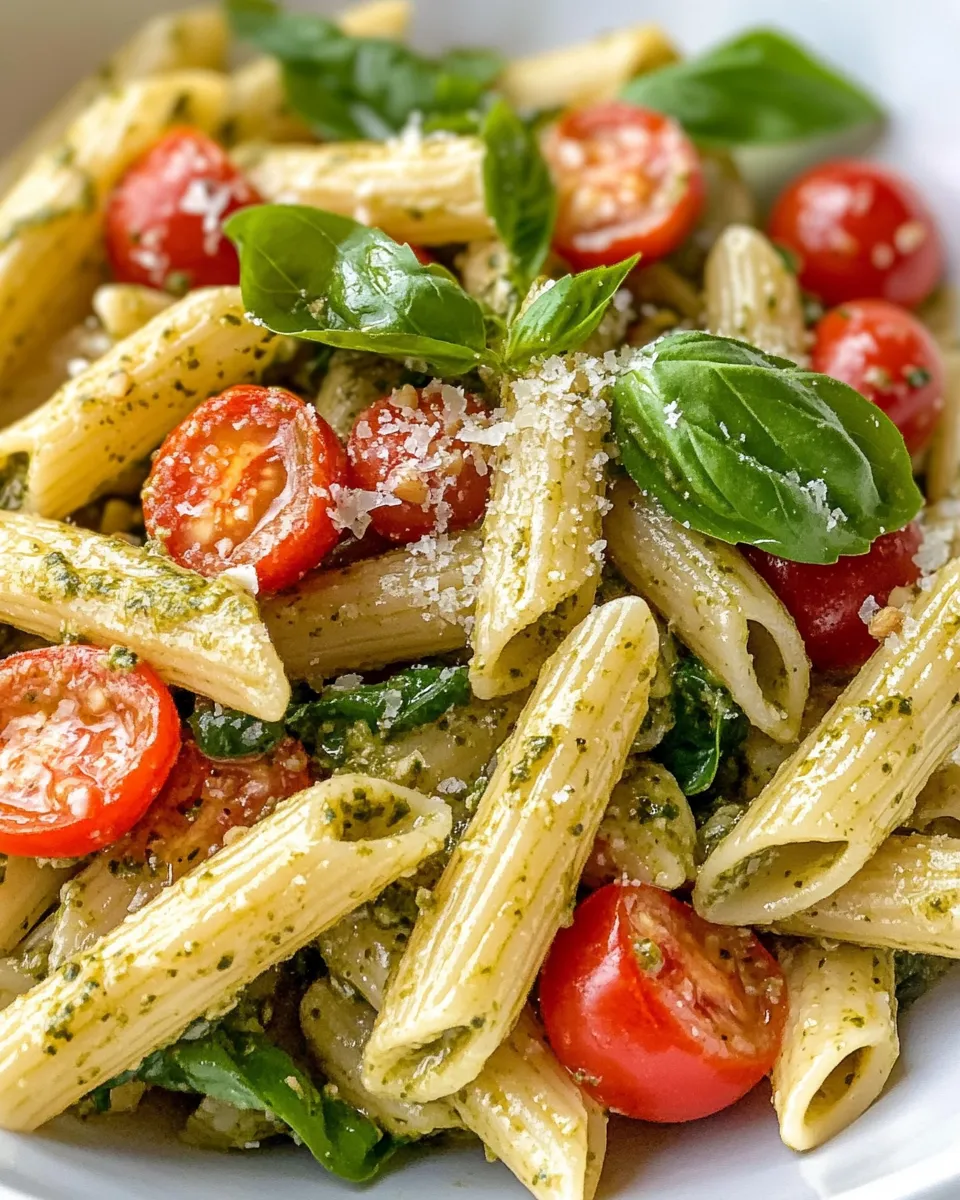
If you’re craving a vibrant, fresh, and satisfying pasta dish, this Mediterranean Veggie Pesto Pasta is exactly what you need. It’s a colorful medley of garden-fresh vegetables tossed with a creamy, aromatic basil pesto that brings every bite to life. Whether you’re cooking for a family dinner or meal prepping for the week, this recipe balances nutrition and flavor with effortless ease. Using simple pantry staples and fresh produce, you can whip up a dish that feels gourmet but comes together in minutes.
Why This Recipe Is Reliable
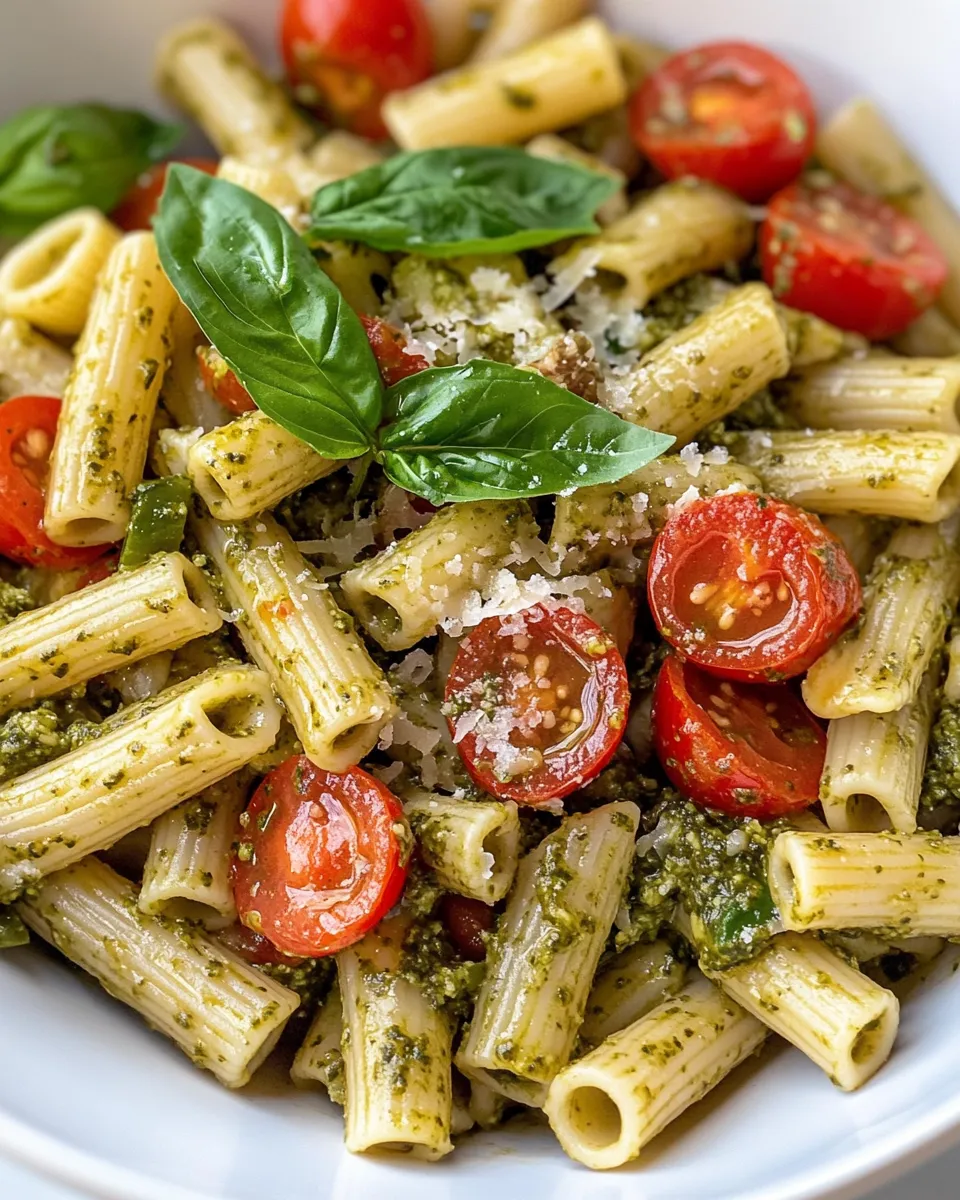
This recipe shines because it relies on fresh ingredients and straightforward techniques that guarantee consistent results. The homemade pesto, made from fresh basil, pine nuts, garlic, and Parmesan cheese, provides an authentic flavor that store-bought sauces just can’t match. The pasta is perfectly cooked al dente, providing a nice texture contrast to the tender veggies like spinach, bell peppers, and juicy cherry tomatoes. The olive oil ties it all together, helping the basil release its full aroma and ensuring every forkful is coated in luscious green goodness.
Plus, the recipe is versatile and forgiving. You can easily swap the pasta type or adjust the vegetables to suit your preference or seasonal availability. The balanced combination of carbs, healthy fats, and fresh vegetables makes it a wholesome meal that’s both filling and nourishing. If you love Mediterranean flavors, this dish will quickly become a staple you turn to again and again.
Ingredient Breakdown
- 8 ounces of pasta (such as penne or fusilli): These shapes hold the pesto and veggies well, delivering flavor in every bite.
- 1 cup of fresh basil leaves: The star of the pesto, fresh basil adds a bright, herbaceous flavor.
- 1/2 cup of pine nuts: Toasted slightly for a nutty depth that enhances the pesto’s richness.
- 1/2 cup of grated Parmesan cheese: Adds salty umami and creaminess to the pesto.
- 1/2 cup of extra virgin olive oil: A good-quality olive oil balances the pesto and keeps it silky.
- 2 cloves of garlic: Fresh garlic cloves give the pesto its characteristic bite.
- 1 cup of cherry tomatoes, halved: Sweet and juicy, they bring a pop of color and freshness.
- 1 cup of spinach: Adds a mild earthy flavor and vibrant green color.
- 1/2 cup of diced bell peppers (any color): For crunch and subtle sweetness.
- Salt and pepper to taste: Essential for seasoning and bringing the flavors together.
What’s in the Gear List
- Large pot: For boiling the pasta to the perfect al dente texture.
- Food processor or blender: To blend the pesto ingredients into a smooth, creamy sauce.
- Colander: For draining the pasta efficiently without losing any precious noodles.
- Large mixing bowl: To combine the pasta, pesto, and veggies evenly.
- Wooden spoon or spatula: For folding everything together gently without mashing the ingredients.
- Measuring cups and spoons: To ensure ingredient accuracy for the pesto and seasoning.
Build Mediterranean Veggie Pesto Pasta Step by Step
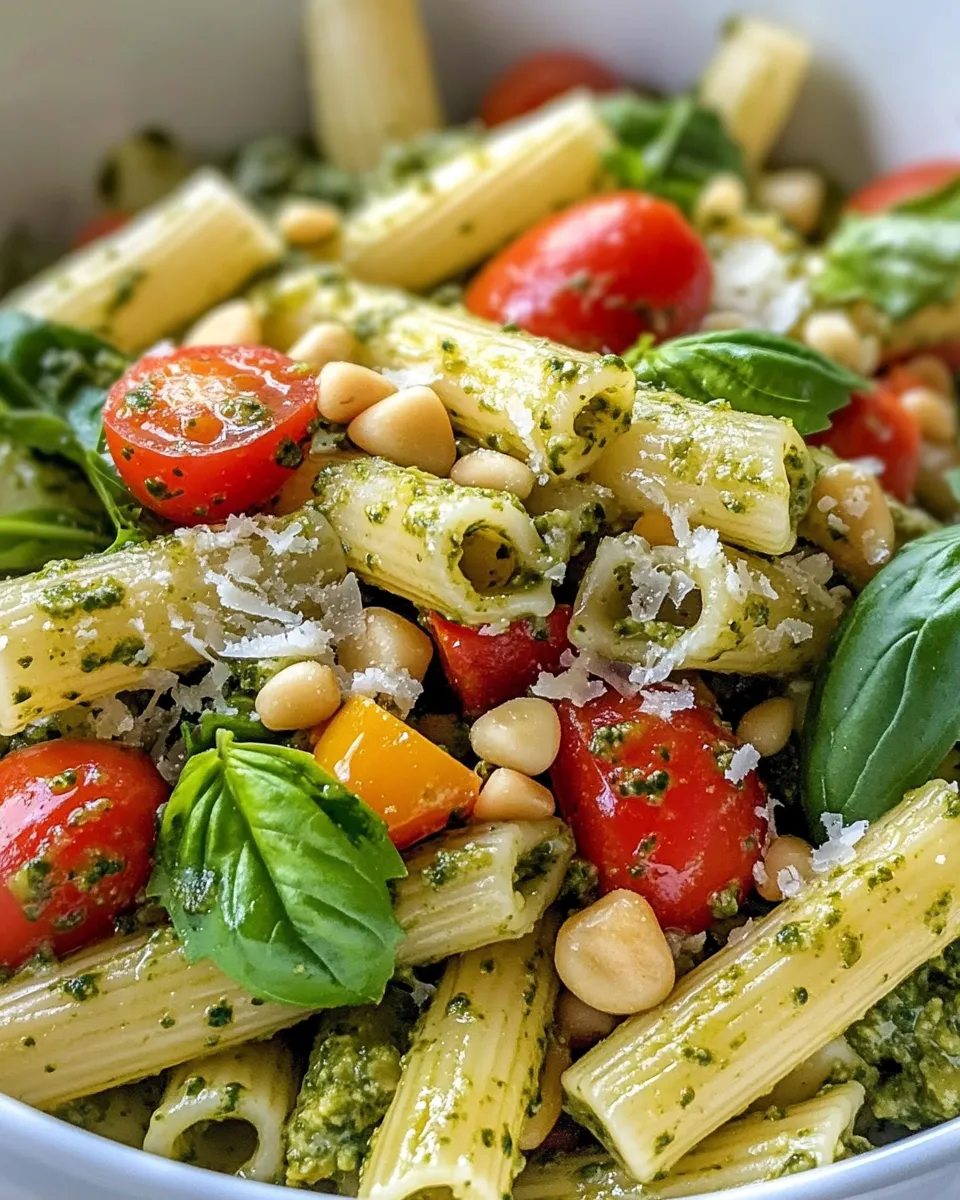
Step 1: Cook the Pasta
Bring a large pot of salted water to a boil. Add 8 ounces of your chosen pasta, such as penne or fusilli, and cook according to the package instructions until al dente. Once cooked, reserve about 1/4 cup of pasta water before draining. This starchy water will help loosen the pesto later if needed.
Step 2: Prepare the Pesto
While the pasta cooks, add 1 cup of fresh basil leaves, 1/2 cup of pine nuts, 1/2 cup of grated Parmesan cheese, 2 cloves of garlic, and 1/2 cup of extra virgin olive oil into a food processor or blender. Pulse until smooth and creamy, scraping down the sides as needed. If the pesto feels too thick, add a tablespoon or two of reserved pasta water to reach your desired consistency.
Step 3: Combine Pasta and Pesto
Transfer the drained pasta to a large mixing bowl. Pour the prepared pesto over the pasta and toss gently to coat every piece evenly. The pesto should cling beautifully to the shapes, infusing them with bright, herbal flavor.
Step 4: Add Fresh Vegetables
Add 1 cup of halved cherry tomatoes, 1 cup of fresh spinach, and 1/2 cup of diced bell peppers to the bowl. Toss everything together carefully to distribute the veggies without bruising the spinach or squashing the tomatoes. The veggies add freshness, crunch, and a colorful Mediterranean flair.
Step 5: Season and Serve
Season with salt and pepper to taste. Give the pasta one last gentle toss and transfer to serving plates. For an extra touch, sprinkle more grated Parmesan or toasted pine nuts on top if desired. Serve immediately for the freshest taste.
Fresh Seasonal Changes
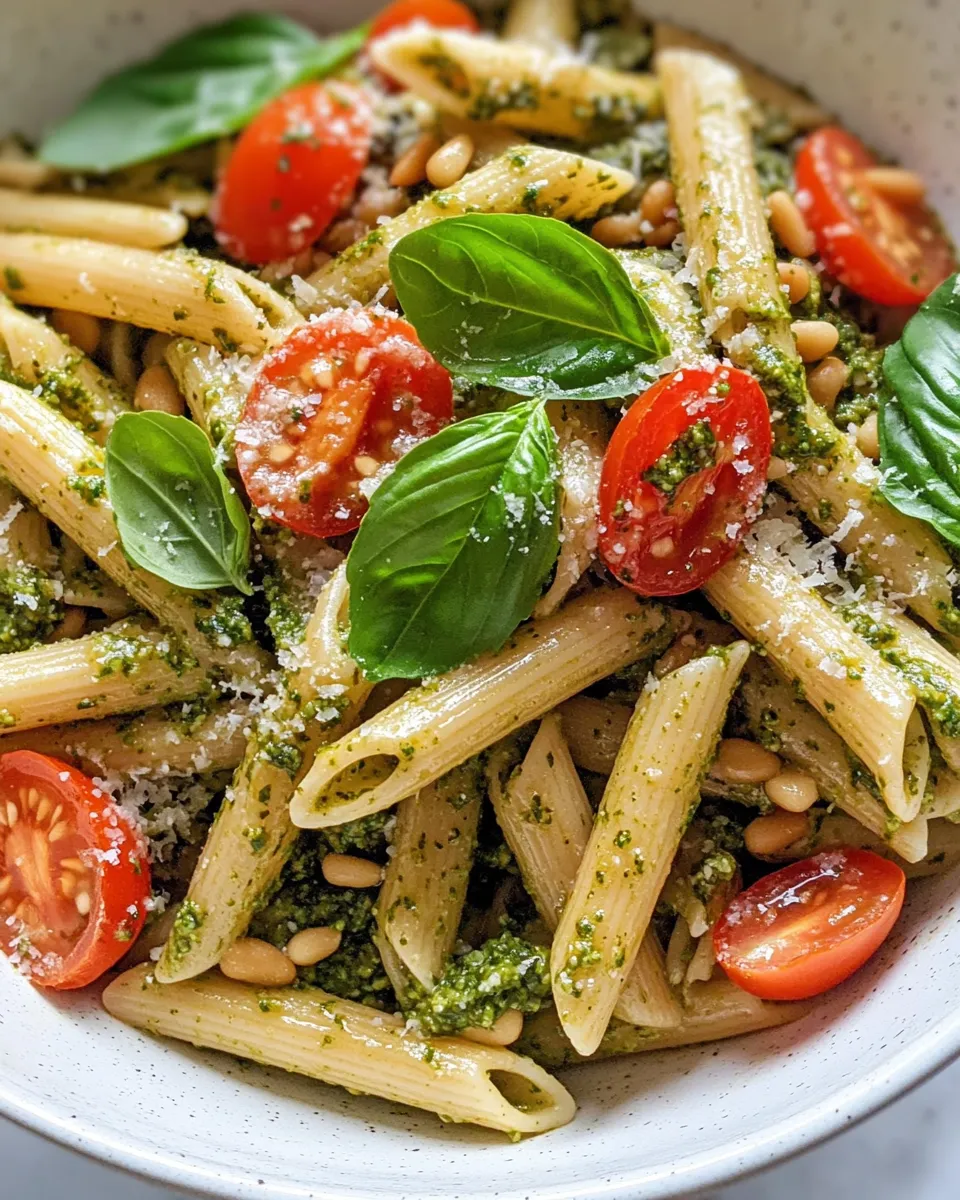
- Swap bell peppers for roasted red peppers in fall and winter for a smoky flavor.
- Add zucchini ribbons or thinly sliced asparagus in spring for a crisp bite.
- In summer, toss in fresh peas or sweet corn for added sweetness.
- Use arugula instead of spinach for a peppery twist.
- Try sun-dried tomatoes in place of cherry tomatoes for concentrated flavor.
Learn from These Mistakes
- Don’t overcook the pasta – mushy noodles lose their texture and don’t hold sauce well.
- Avoid adding too much olive oil to the pesto at once; add gradually to control sauce thickness.
- Make sure to toast the pine nuts lightly before blending to unlock their nutty aroma—raw pine nuts can taste bland.
- Be gentle when mixing in the veggies, especially spinach and tomatoes, to keep them vibrant and fresh-looking.
- Remember to reserve pasta water; it’s a game-changer for adjusting pesto consistency.
Prep Ahead & Store
This Mediterranean Veggie Pesto Pasta is perfect for meal prep. You can make the pesto up to three days ahead and store it tightly covered in the refrigerator. Prepare the pasta and vegetables fresh just before serving for the best texture.
Leftovers keep well in an airtight container for up to two days. To refresh, add a splash of olive oil or reserved pasta water and toss gently before reheating or serving cold as a pasta salad.
FAQ
Can I use a different nut instead of pine nuts?
Absolutely! Walnuts, almonds, or cashews work beautifully and bring their own unique flavor and texture to the pesto. Just toast them lightly before blending for the best taste.
Is this recipe suitable for gluten-free diets?
Yes! Simply substitute the pasta for your favorite gluten-free variety. Many penne or fusilli options made from rice, corn, or chickpeas will keep the texture and flavor intact.
Can I make this recipe vegan?
To make it vegan, swap the Parmesan cheese for a nutritional yeast or vegan cheese alternative. This will maintain the cheesy flavor while keeping it plant-based.
How do I prevent the pesto from turning brown?
To keep your pesto bright green, store it in an airtight container with a thin layer of olive oil on top to prevent oxidation. Using fresh, vibrant basil and consuming it within a few days also helps.
In Closing
This Mediterranean Veggie Pesto Pasta brings together the best of fresh produce, fragrant basil pesto, and perfectly cooked pasta for a dish that’s both comforting and invigorating. It’s simple enough for weeknight dinners but special enough to impress guests. With colorful vegetables, crunchy pine nuts, and the rich complexity of homemade pesto, every forkful delivers a bright taste of the Mediterranean. Once you try it, you’ll understand why this recipe is a go-to favorite for so many. Enjoy the harmony of flavors and textures that make this pasta dish truly unforgettable.
Share on Pinterest
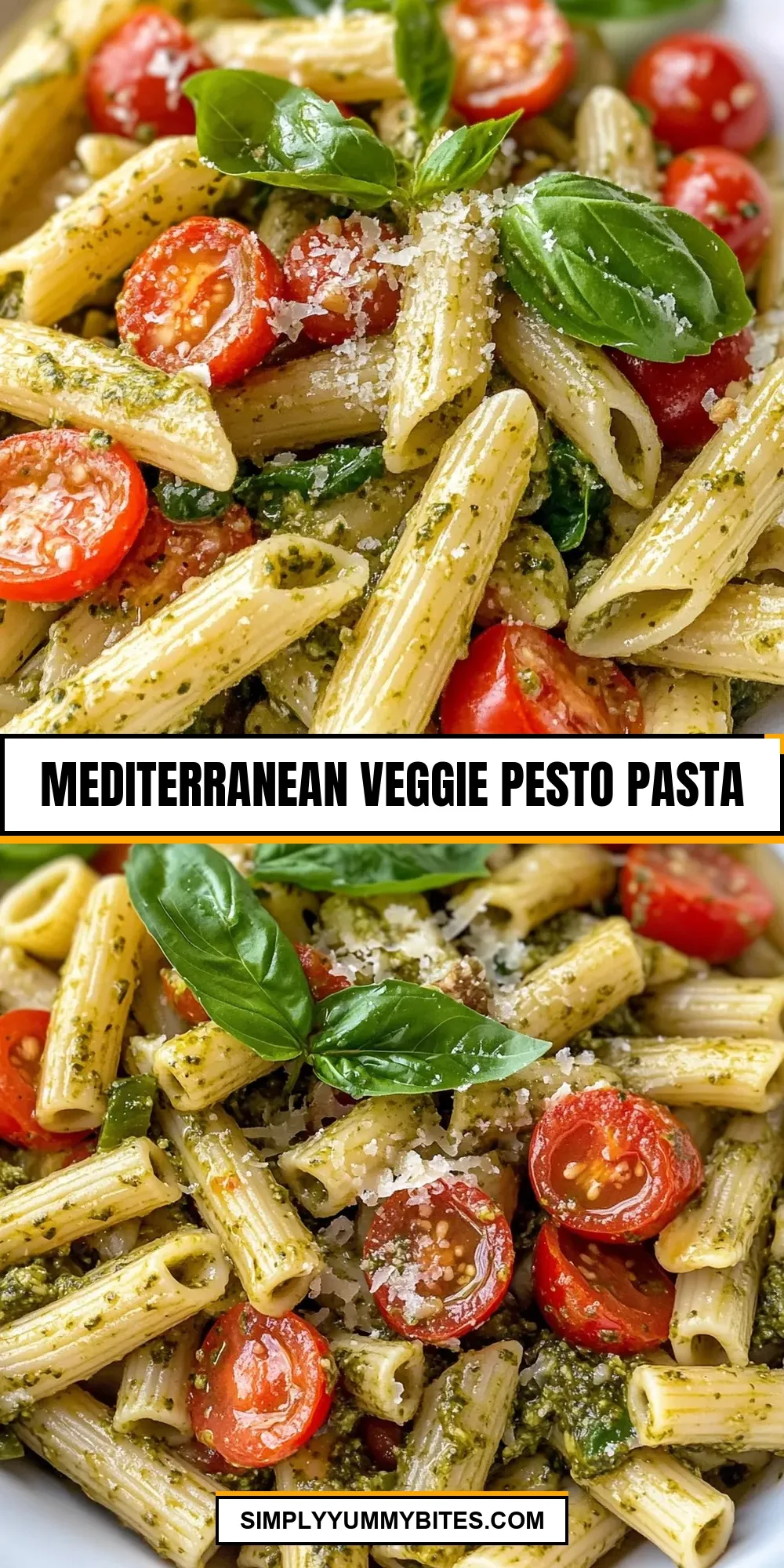
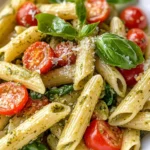
Mediterranean Veggie Pesto Pasta
Ingredients
- 8 ounces pasta such as penne or fusilli
- 1 cup fresh basil leaves
- 1/2 cup pine nuts toasted slightly
- 1/2 cup grated Parmesan cheese
- 1/2 cup extra virgin olive oil good-quality
- 2 cloves garlic fresh
- 1 cup cherry tomatoes halved
- 1 cup spinach fresh
- 1/2 cup bell peppers diced, any color
- salt and pepper to taste
Instructions
- Bring a large pot of salted water to a boil. Add 8 ounces of your chosen pasta, such as penne or fusilli, and cook according to the package instructions until al dente. Reserve 1/4 cup of pasta water before draining.
- While the pasta cooks, add 1 cup fresh basil leaves, 1/2 cup pine nuts, 1/2 cup grated Parmesan cheese, 2 cloves garlic, and 1/2 cup extra virgin olive oil into a food processor or blender. Pulse until smooth and creamy, scraping down sides as needed. Add reserved pasta water if pesto is too thick.
- Transfer the drained pasta to a large mixing bowl. Pour the prepared pesto over the pasta and toss gently to coat evenly.
- Add 1 cup halved cherry tomatoes, 1 cup fresh spinach, and 1/2 cup diced bell peppers to the bowl. Toss carefully to combine without bruising the veggies.
- Season with salt and pepper to taste. Toss gently one last time and serve immediately, optionally topping with more grated Parmesan or toasted pine nuts.
Equipment
- Large Pot
- Food processor or blender
- Colander
- Large Mixing Bowl
- Wooden Spoon or Spatula
- Measuring cups and spoons
Notes
- Toast pine nuts lightly before blending to enhance their flavor.
- Reserve pasta water to adjust pesto consistency as needed.
- Store pesto covered with olive oil to keep its bright green color.
- Make pesto up to three days ahead and refrigerate for convenience.
- Use gluten-free pasta or vegan cheese alternatives to accommodate dietary needs.


